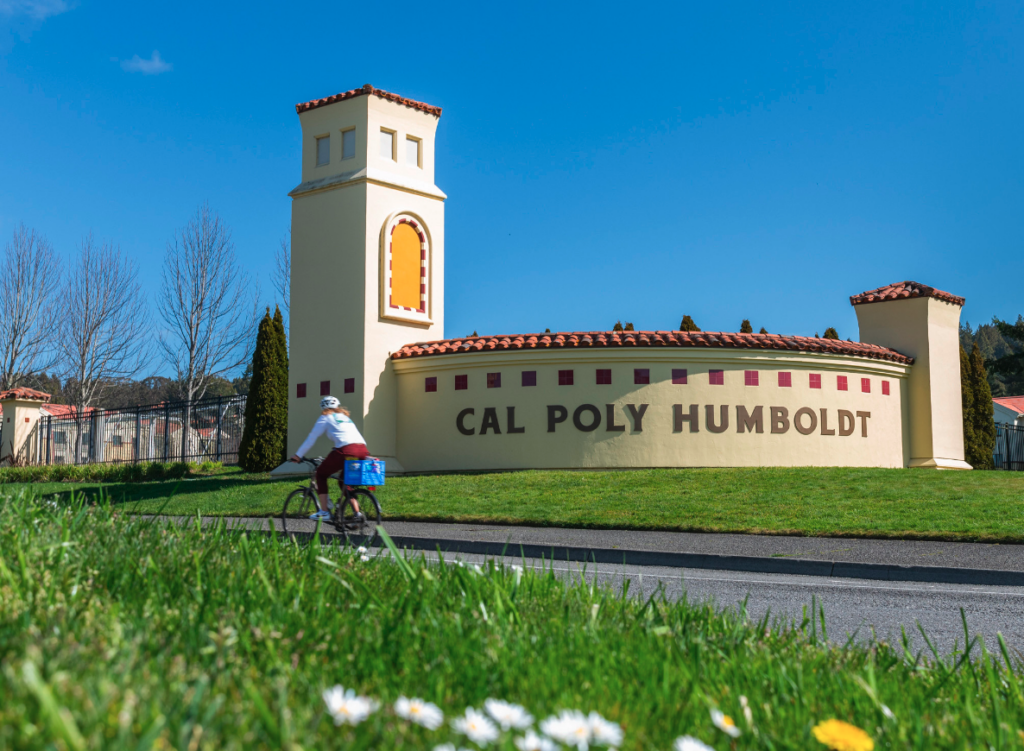[ad_1]

Cal Poly Humboldt
Credit: Cal Poly Humboldt
Cannabis has been legal in the state of California since 2016. With California universities adopting cannabis courses that allow students to explore all facets of the developing industry, federal roadblocks that restrict what kinds of courses can be offered remain.
What kinds of cannabis courses can California colleges offer?
Since legalization, several of California’s public universities have implemented courses exploring topics of business, law and public policy related to cannabis. However, the question of cultivation courses within agricultural programs remains a complex one.
Cal Poly Humboldt is one of the California universities that spearheaded the jump into cannabis courses after legalization, adding a cannabis studies major program in the fall of 2023. Concentrations under this major include environmental stewardship and equity and social justice.
What are colleges unable to do because of federal law?
Despite the major, neither Cal Poly Humboldt — nor any other plant science department in California colleges — can offer classes in which students handle the plant. Doing so may risk federal student aid, including Pell grants, which support primarily underserved groups like first-generation and minority students.
“Cannabis remains a federally controlled Schedule I substance,” said Dominic Corva, director of cannabis studies at Cal Poly Humboldt. “The lawyers in the Cal State and UC systems, as well as every other university, argue that it’s federally illegal, and students’ federal aid could be in danger if we allow this.”
Corva is the founder of the Interdisciplinary Institute for Marijuana Research at Cal Poly Humboldt; around the time of state legalization, Corva was working with his colleagues to develop a curriculum for a cannabis studies major. This major, explained Corva, falls within the university’s sociology department.
“The main reason I landed in sociology is because the College of Natural Sciences and College of Professional Studies didn’t want anything to do with it,” Corva said. “CNRS literally couldn’t wrap their heads around how to approach cannabis education without actually doing natural science with it. We were operating in an institutional framework where it was close to impossible for it to happen in any other kind of department.”
This raises the question of whether cannabis cultivation courses will ever fall within plant science and agricultural departments at universities.
UC Davis, which is ranked No. 1 in the nation for agriculture, doesn’t offer any related courses, Gail Taylor, department chair of plant sciences, said.
“We have run a seminar course on cannabis in the past with invited speakers but have nothing on the books at the moment. We have run a professional short course on hemp, too,” Taylor said.
However, general plant science courses may provide students interested in cannabis cultivation with knowledge they need for a future career in the industry.
“Most of the ‘plant sciences’ majors are relevant to cannabis production,” Taylor said. Courses offered may help by “providing generic knowledge that the graduating students can take into multiple industries.”
Scott Steinmaus is a professor and the department head of plant sciences at Cal Poly, San Luis Obispo. As a plant science professor, he said that his plant physiology courses are applicable to a range of plants, including cannabis.
“Plant growth is essentially determined by photosynthesis, and all plants photosynthesize with the same enzymes, with a few nuances that are quite easy to figure out,” Steinmaus said. “We provide our students the resources and experiences to understand how to best grow plants, no matter what those plants are; whether it’s tomatoes, strawberries, grapes, avocados or cannabis.”
In his plant physiology classes, Steinmaus sometimes uses cannabis in examples, although without physically handling the plant.
“The compliance requirements for cultivation and sales of cannabis products are very stringent,” Steinmaus said of state regulations. “We currently do not offer courses where cannabis plants are grown on campus because of the compliance restrictions and that it is not federally legal. That doesn’t mean we couldn’t do so in the future when it does become legal at the federal level.”
What about hemp?
Similar roadblocks exist for the cultivation of hemp, a closely related plant that is legal because it contains less than 3% tetrahydrocannabinol (THC), the main psychoactive compound in cannabis.
Several public institutions of higher learning in the United States, including Santa Rosa Junior College, offer hemp-growing courses. However, these courses are touchy for universities to offer because of compliance regulations.
The 2018 federal farm bill clarified that while hemp and its derivatives are no longer considered Schedule I controlled substances, institutions that offer hemp courses must apply for a hemp research license through the state.
At Cal Poly San Luis Obispo, Steinmaus said the university doesn’t offer hemp courses yet.
In the future, if universities were able to legally offer cannabis cultivation courses as well, these would look different depending on the school and where it is in the state, Corva said.
“I know that here at Cal Poly Humboldt, it will probably look a lot more like regenerative agricultural program, where students are learning about how to be sustainable with their cannabis,” Corva said. “That’s way off, even if we’re allowed to do it, because there continue to be a lot of firewalls between the industry, state and federal laws.”
Arabel Meyer is a fourth-year journalism major at Cal Poly, San Luis Obispo and a member of EdSource’s California Student Journalism Corps.
[ad_2]
Source link








